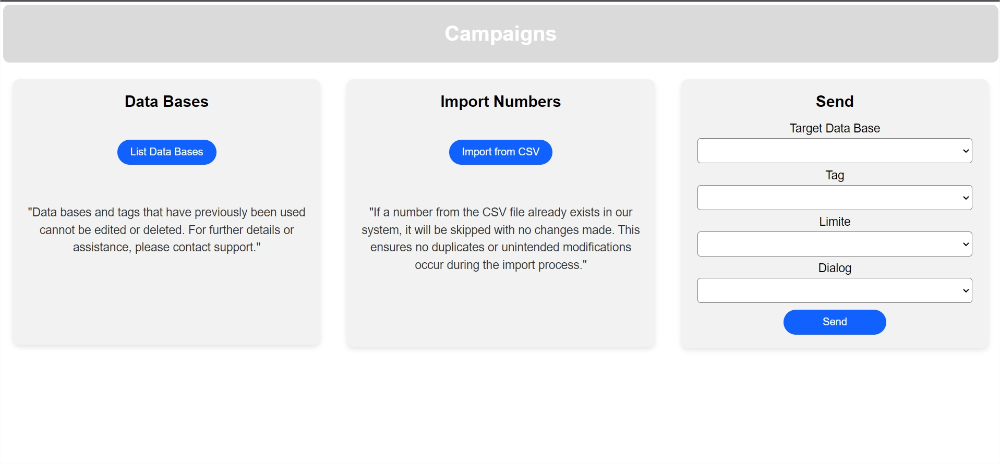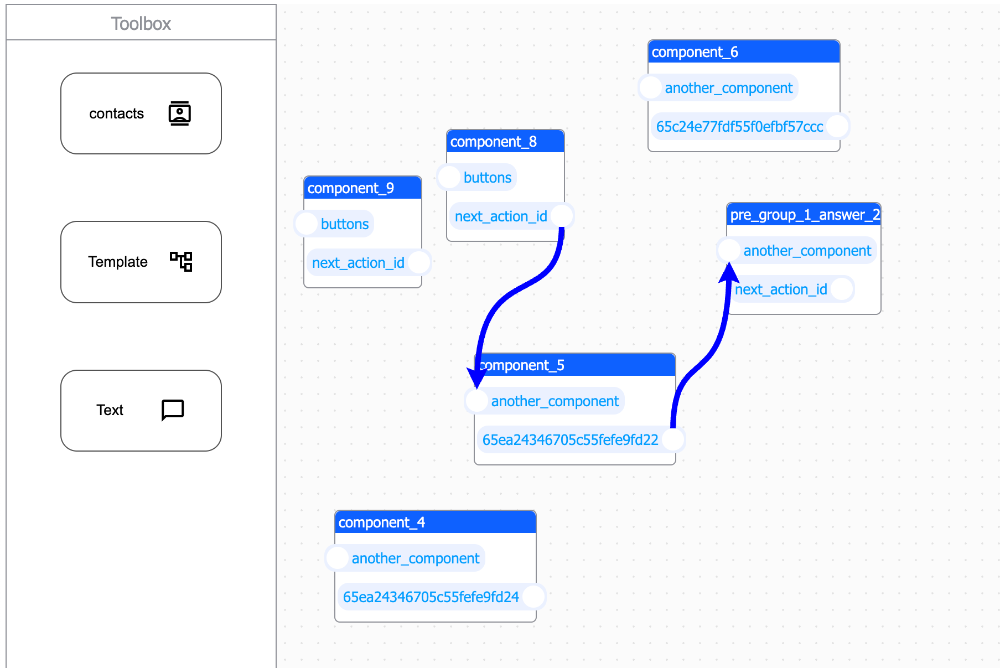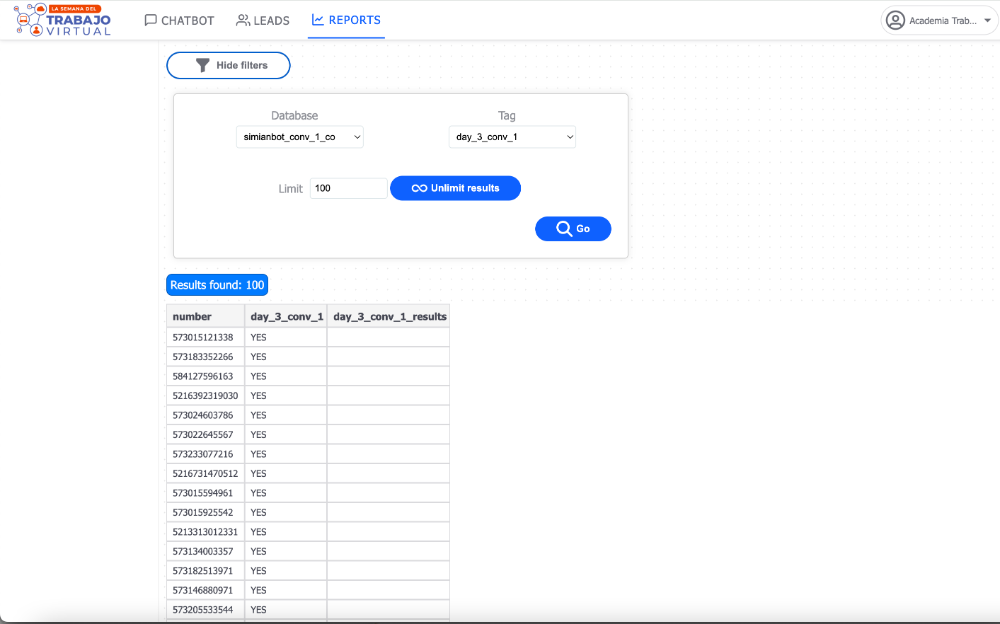How to Import Contacts into WhatsApp and Launch Effective Broadcasts
WhatsApp is a powerful tool you can use to connect closely with your audience and provide a great customer journey while ensuring that messages are delivered and opened.
However, using WhatsApp for bulk messaging and broadcasting can be challenging and risky without the right tools and the proper precautions.
There are multiple tools out there that help you import contact lists and send them bulk messages via WhatsApp. However, If you choose the wrong tool or overlook some requirements or precautions, all your efforts will be worthless. And you might risk getting blocked by users.
So, without further ado, here’s the safe and effective way to send bulk WhatsApp messages.
What should you do before sending bulk WhatsApp messages?
Many businesses and marketers have resorted to WhatsApp as the new email alternative to ensure messages are delivered to users. However, most data protection and privacy rules that apply to email do apply to WhatsApp, especially in Europe.
So, if you message users without their consent or send unwanted messages, you will eventually get blocked. Also, if you do not comply with the WhatsApp commerce policy or send spam and irrelevant messages your number might get suspended.
Here’s What you can do to ensure that your messages get delivered and opened and you don’t get blocked:
- Get Access to the WhatsApp Business API
- Choose the right bulk messaging tool
- Respect the User’s data and privacy
- Avoid web scraping and buying contact lists
- Segment your audience
- Enable unsubscriptions
1. Get Access to the WhatsApp Business API
Access to the WhatsApp Business API is required to send WhatsApp messages in bulk without limits on features.
Sending bulk WhatsApp messages through illegitimate third-party tools without the WhatsApp API goes against WhatsApp's Terms of Service and can lead to account suspension or even termination.
The only other legitimate way of sending bulk messages besides the API is through the WhatsApp Business App but you’ll have to deal with limits on the number of messages sent and the features.
Why is that? To maintain WhatsApp as a platform with great user experience, Meta (Formerly known as Facebook) has an established process of verifying messages sent through the WhatsApp Business API to ensure that users don’t get spam or disturbing messages.
Spam and promotional messages are annoying for users, and while you can find these in your email’s spam folder, Meta prevents them from being sent from the start. Therefore, any message you send must comply with the WhatsApp Business Messaging Policy.
If your goal is safe and legitimate bulk messaging with the least restrictions on features, make sure to get access to the official WhatsApp API.
2. Choose the right bulk messaging tool
The WhatsApp API is not an application or an interface you can easily interact with to send bulk messages with a few clicks. It is a programming interface that enables software like SimianBot, for example, to send WhatsApp messages in bulk to a big list of contacts.
A bit too complicated? Think of it this way: If you need light in your room, you’d go and buy a lamp. However, the lamp alone does not produce light; it needs to be connected to electricity through the proper wiring.
The API is like a power station and a distribution network. It generates the data (electricity) and has specific endpoints (sockets) that deliver the data in the right format (voltage) to the application (lamp).
The lamp is like a software application. It has a specific purpose, like providing light (illuminating data). However, it needs a power source (the API) to function.
So, in short, on top of the API, you’d need a software application to use the messaging power WhatsApp is supplying us with. Make sure that this software has all the features you and your business need.
SimianBot, for example, can help you automate appointment booking, send bulk messages, and create an AI-powered chatbot.
3. Respect users’ data and privacy
Before sending messages to a list of contacts on WhatsApp, ensure all contacts within your list agree to receive messages from your business.
Complying with your region's data protection and privacy regulations is very important. Otherwise, you might face some legal complications, and if multiple numbers block or report you,WhatsApp might suspend your account and number.
4. Avoid web scraping and buying contact lists
Ensure that your marketers are using legitimate lead-generation techniques. And that any contact list or CSV sheet you have is exported from your CRM or another legitimate source.
Scraping contacts and phone numbers from websites or buying them is a bad practice, and sending messages to these contacts violates data privacy and protection laws and regulations.
Eventually, users will start blocking you, and Meta might block or suspend your account.
So ensure that you’re not buying contact lists and that you’re asking users for their permission to send messages. You can also use ads that click to WhatsApp to get users to start WhatsApp conversations with you and enroll them in your marketing workflows.
5. Segment your audience
Irrelevant messages get ignored, and they eventually negatively affect your open rates.
How to ensure that your messages are relevant to your target audience? Divide your audience based on their interests. For example, tools like SimianBot enable you to add tags to certain audiences.
So, if you’re a news website with one group of people interested in Sports and another interested in Local events, you can add a unique tag to each group.
This way, those interested in sports only receive sports news, and those interested in local events only receive messages within this category.
6. Enable unsubscriptions
People get tired of promotional messages sometimes, they change phone numbers or they might lose interest in your messages. And getting a signal that you’d need to stop sending them messages is better than getting blocked right away.
On the one hand, it decreases the risk of your number getting blocked or suspended; on the other hand, you can spend less money and resources on unengaged contacts.
Step-by-Step Guide to Importing Contacts into WhatsApp
1. Prepare Your Contact List
The first step for an effective WhatsApp bulk messaging campaign is to prepare a contact list or have an audience database ready.
This step is very simple, all you need to do is prepare a CSV file containing your contacts. Ensure all phone numbers are in international format, including the country code, to facilitate seamless importing.
And don’t forget, do not include any contacts that didn’t agree to receive messages from your business. Avoid buying these CSV sheets or scraping contacts from websites.
2. Import Contacts into SimianBot
You can import your CSV sheet with a click of a button with SimianBot.
The process is really simple and besides importing your audience from a CSV file you can create one through the WhatsApp chatbot.

This flexibility allows you to efficiently build and manage a list of WhatsApp contacts that you can target through bulk messages.
3. Set Up Tags for Targeted Campaigns
Once your contacts are imported, you can set up tags for different audience segments with SimianBot. This feature is important for targeting specific groups with personalized messages, ensuring your campaigns are relevant and engaging.
Launching WhatsApp Bulk Messages with SimianBot
Create Engaging Campaigns
After importing your contacts and setting up tags, you can create messages and conversation flows.

SimianBot enables you to create WhatsApp dialogs, rules, and automation flows, which can help you steer conversations the way you want and guide users to the bottom of the funnel to ensure that they convert.
Send Your Broadcast
With SimianBot, launching a broadcast is as straightforward as selecting your target audience, choosing the relevant tag(s), and hitting "Send." The platform ensures each campaign has a unique tag, making it easy to manage and track the performance of different initiatives.
Analyze Campaign Performance
You can monitor the success of your campaigns through the reports section within SimianBot. The report enables you to track how many contacts received your message, so you can gain insights about some crucial metrics by selecting the desired audience (database) and tag.

Why Choose SimianBot for WhatsApp Bulk Messaging?
By choosing SimianBot you can rest assured that your business will follow all the best practices discussed earlier in the article.
Their solution is powered by the official WhatsApp API and the platform offers a white-label WhatsApp Chatbot with bulk messaging capabilities. All of this coupled with on-demand integration and development team expertise in WhatsApp and OpenAI API, positions SimianBot as the perfect choice for businesses.
Key Benefits:
- Efficiency: Streamline the process of sending bulk messages without the risk of getting banned.
- Segmentation & Personalization: Use tags to target specific audiences, ensuring relevant and engaging messages.
- Versatility: Send various message types , from simple texts to complex Dialogs and Flows.
- Analytics: Track the performance of your campaigns with detailed reports, allowing for data-driven decision-making.
Conclusion
SimianBot provides an unparalleled platform for businesses to leverage WhatsApp for effective communication with their audience. By simplifying the process of importing contacts, creating targeted campaigns, and analyzing performance, SimianBot empowers businesses to maximize their outreach and engagement. Start using SimianBot today to transform your WhatsApp marketing strategy and connect with your audience like never before.
